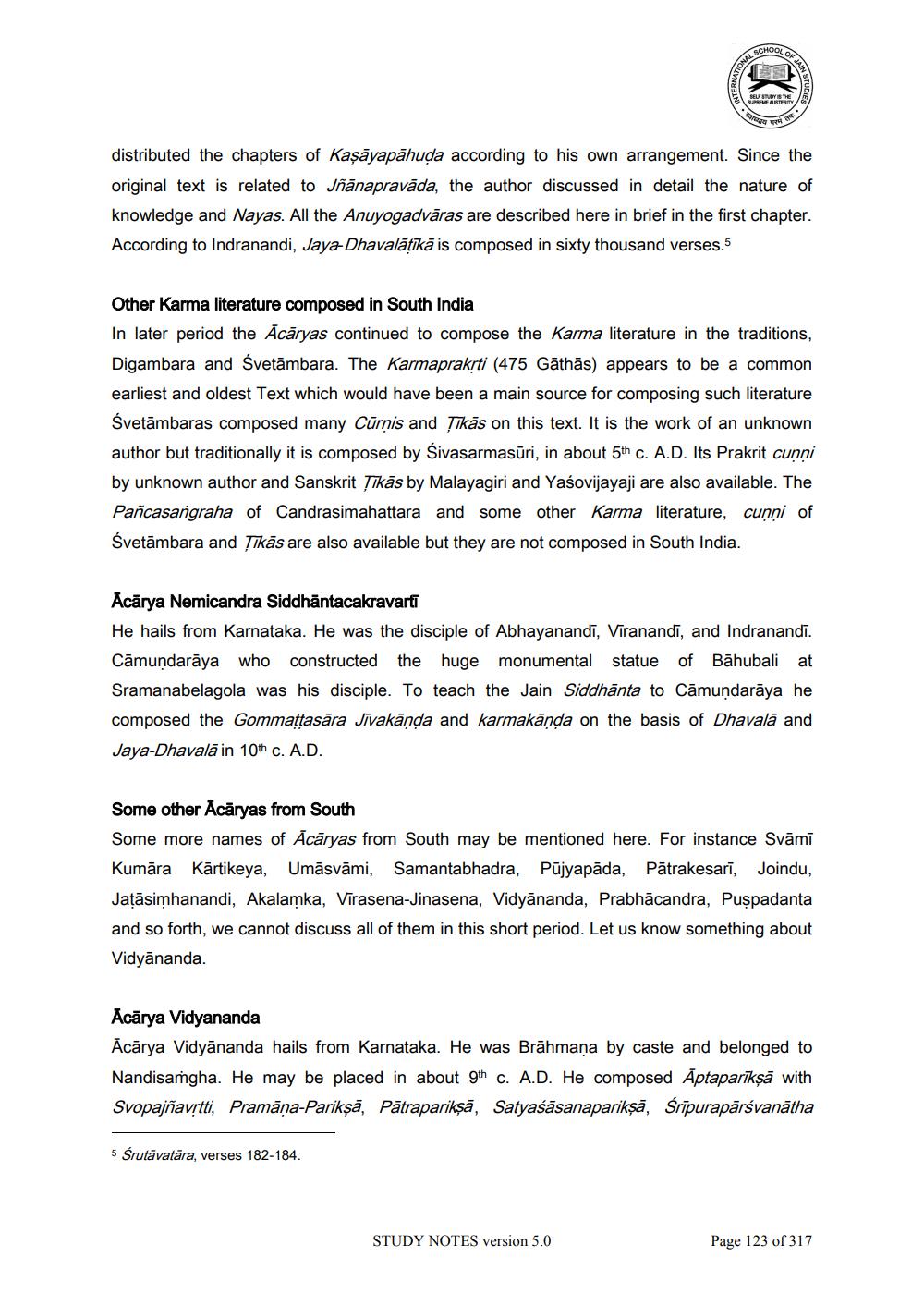________________
SCHOOL
OF
SELF STUDY IS THE SUPREME AUSTERITY
स्वाध्याय
distributed the chapters of Kasayapahuḍa according to his own arrangement. Since the original text is related to Jñānapravāda, the author discussed in detail the nature of knowledge and Nayas. All the Anuyogadvāras are described here in brief in the first chapter. According to Indranandi, Jaya-Dhavalātikā is composed in sixty thousand verses."
IN STUDIES
Other Karma literature composed in South India
In later period the Acaryas continued to compose the Karma literature in the traditions, Digambara and Svetambara. The Karmaprakṛti (475 Gāthās) appears to be a common earliest and oldest Text which would have been a main source for composing such literature Śvetāmbaras composed many Curnis and Ṭīkās on this text. It is the work of an unknown author but traditionally it is composed by Śivasarmasūri, in about 5th c. A.D. Its Prakrit cunni by unknown author and Sanskrit Tikās by Malayagiri and Yasovijayaji are also available. The Pañcasangraha of Candrasimahattara and some other Karma literature, cunni of Śvetāmbara and Tikās are also available but they are not composed in South India.
5 Śrutavatāra, verses 182-184.
Acārya Nemicandra Siddhantacakravarti
He hails from Karnataka. He was the disciple of Abhayanandī, Viranandī, and Indranandi. Cămundaraya who constructed the huge monumental statue of Bahubali at Sramanabelagola was his disciple. To teach the Jain Siddhanta to Camundaraya he composed the Gommaṭṭasara Jivakända and karmakanda on the basis of Dhavala and Jaya-Dhavala in 10 c. A.D.
STUDY NOTES version 5.0
Some other Acāryas from South
Some more names of Acaryas from South may be mentioned here. For instance Svāmī Kumāra Kartikeya, Umāsvāmi, Samantabhadra, Samantabhadra, Pujyapāda, Pātrakesari, Joindu, Jatasimhanandi, Akalamka, Virasena-Jinasena, Vidyananda, Prabhācandra, Puspadanta and so forth, we cannot discuss all of them in this short period. Let us know something about Vidyananda.
Acārya Vidyananda
Acarya Vidyānanda hails from Karnataka. He was Brāhmaṇa by caste and belonged to Nandisamgha. He may be placed in about 9 c. A.D. He composed Aptapariksa with Svopajñavṛtti, Pramana-Parikṣa, Patraparikṣā, Satyasasanapariksa, Sripurapärśvanatha
Page 123 of 317




